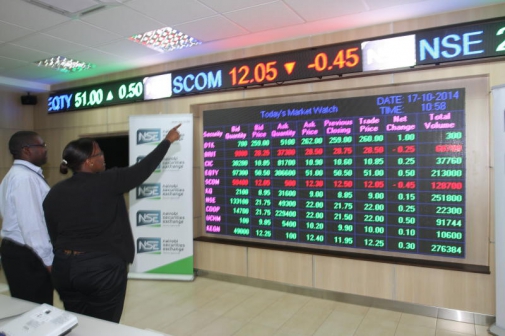×
The Standard e-Paper
Join Thousands Daily

The trading floor at Nairobi Securities Exchange. Only 12 companies will now trade under the commercial and services sector after Hutchings Biemer's exit. [Beverlyne Musili, Standard]
Furniture retailer Hutchings Biemer and investment and trading firm A Baumann have finally been delisted from the Nairobi bourse.